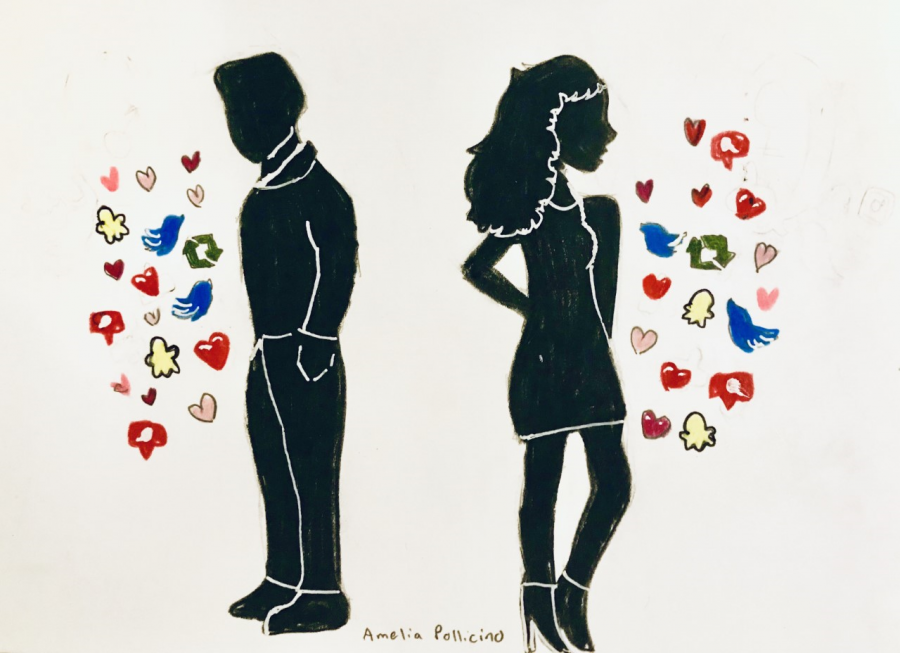Gender Roles and the Media
Many times, we go about our daily lives and become immune to the advertisements we see on television and social media, and, without realizing it, we absorb what the advertisements are portraying. The immense sexism portrayed through advertisements we see every day subconsciously influence our actions and opinions. Recently, after watching two very influential and accurate documentaries, I have become more aware of these portrayed stereotypes in everyday life.
The first documentary is called Miss Representation and was written and directed by Jennifer Siebel Newsom, who is a filmmaker, CEO, advocate, and thought leader. This documentary details how the media portrays women as inferior to men and makes it seem like women would be nowhere without their looks, sexuality, and youth. This portrayal leads to women having minimal positions of power in the United States. The documentary included both controversial and provocative interviews with many powerful women, including journalist and news anchor Katie Couric and actress Rosario Dawson. It also gives many shocking statistics, including that women make up only 4.6 percent of the S&P 500 CEOs and 17% of directors, executive producers, writers, cinematographers, and editors working on the top 250 domestic grossing films. Another fact revealed by the documentary is that the United States is ranked 33rd out of the major 49 countries in the world when it comes to women taking part in national legislature. The documentary and the influential women and girls in the film explained that this underrepresentation of women came down to one thing: the major misrepresentation of women in the media.
Think about the movies and books where a woman is the main protagonist. Many may not realize it, but most times, the character is sexualized. This leads to girls thinking that they can only become powerful because of their looks, and this should not and cannot be the case. Also, many actresses post provocative photos, encouraging the stereotype that women always have to look pretty and be sexualized. In order to stop these stereotypes from occurring, the media must portray woman in a more respectable way, which will lead to a new generation of powerful women.
Similarly, a documentary called The Mask You Live In was produced discussing how men are also masked by stereotypes as a result of their portrayal in the media. This documentary was also written, directed, and produced by Jennifer Siebel Newsom and was first shown to the world at the 2015 Sundance Film Festival. This documentary depicts how American culture and advertisements create a specific mold of how to be a “man” and how this stereotype and the pressures that come along with it influences boys to be more violent. The documentary also explains how the mold creates challenges when boys are trying to become their true selves. In an activity led by an activist for young boys that is shown in the film, the activist had teenage boys write on the front of a piece of paper the traits of the person they portray for the rest of the world, and on the back they wrote all of the emotions that they kept bottled up inside of them. Many of the words on the back of the page stuck with me, particularly the phrase “my heart,” which one boy wrote. This shows that the aggression that men are shown to have in movies, books, and shows, leads to pressure that makes it hard for young men to express their emotions. This leads to a culture of men being violent and showing their emotions by being angry. This is why, as the documentary explained, three or more boys commit suicide every day, and boys are two times more likely to drop out of school, two times more likely to receive special education, and four times more likely to be expelled. There is a simple solution to help boys in our country grow up without living with a mask on, and that is stopping the “manly” stereotype from being portrayed in the media and in everyday life. We can all make a change to help boys in our country break free of their masks.
These documentaries have been shown in LHS Health Teacher Jennifer Kramer’s class for many years. She explained, “I decided to show Miss Representation and The Mask You Live In because they are both relevant and current. Both documentaries are meant to foster reflection about how the media impacts our health and allows the students to consider factors they might not have thought of before. These documentaries offer another point of view.” Kramer described what about watching the documentaries has most impacted her: “I think something that has ‘stuck’ with me over the years is that both documentaries have been a catalyst to meaningful conversation in the classroom. They have been well received by the students and their feedback is usually positive.” Kramer went on to explain, “Overall, I think documentaries and movies that can leave an impact and foster learning are hard to come by. Time is so limited in the classroom that it has to be really worth it, and these two definitely are.”
When sophomore Alana Scruggs, who is a student in Kramer’s class, was asked what stuck with her most about the films, she expressed, “The expectations set up from our society are ridiculous. Many men feel like they have to be strong and be the ‘prince charming’ for a girl. They also feel if they are not, then they are weaker. Girls, on the other hand, if they show any interest in making themselves stronger, they are seen as gross and are bullied because they aren’t feminine enough. Expectations in this world are pointless due to people only making their own in the end. Everyone is different, and it is more than okay to not live up to those expectations.” Sophomore Emma Leighley, who is also a student in Kramer’s class, explained after watching the documentaries, “Throughout watching the documentary, what stuck with me the most was that men and women are really living two different lives. Women are brought down if they are too sensitive or aren’t acting how ‘a lady should act.’ On the contrary, men are brought down due to the fact that they are always portrayed as ‘masculine’ and are taught to always ‘suck it up.’ Expectations in today’s society are truly messed up and need to be fixed. Both men and women should act respectfully towards each other and be treated equally.” Personally, I was shocked by how few shows and movies have women as the protagonist and how few advertisements, shows, and movies portray women as powerful.
Both of these documentaries opened my eyes and motivated me to make a change and rewire my brain from playing into these stereotypes. Many people also take more direct action on the sexism raging in the entertainment industry. Actress Jameela Jamil has been fighting to remove diet advertisements and advertisements for dangerous products from social media, because she believes, “Body positivity is a socio-political movement that exists for women who are larger who get discriminated against medically and in society because of their size. We are more of a body neutrality movement where we teach to not focus whatsoever on size… We are trying to encourage people to find their self-esteem and worth outside of how little space they physically take up in the world.” There are many steps that us teenagers can take to stop this misrepresentation of women in the media, and to help boys remove the masks they feel they have to live in. The solution truly starts with us.

I am Emma Ward, and I am the News and Opinions online editor for Horizon. In my free time, I enjoy playing tennis, working out, and hanging out with my...
























